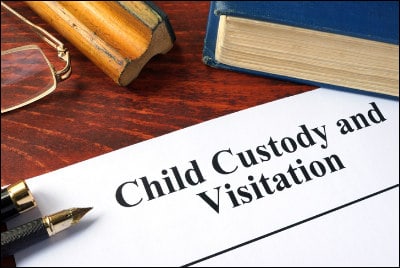 If you have a custody and visitation matter before a Juvenile and Domestic Relations District Court in Virginia, there is a chance that the court will appoint a guardian ad litem (“GAL”). The GAL will be a local attorney certified to serve as a GAL. The purpose of the GAL, per Virginia Supreme Court Rules 8:6, is to “vigorously represent the child, fully protecting the child’s interest and welfare.” It is the GAL’s job to tell the court what he or she believes is in the child’s best interests.
If you have a custody and visitation matter before a Juvenile and Domestic Relations District Court in Virginia, there is a chance that the court will appoint a guardian ad litem (“GAL”). The GAL will be a local attorney certified to serve as a GAL. The purpose of the GAL, per Virginia Supreme Court Rules 8:6, is to “vigorously represent the child, fully protecting the child’s interest and welfare.” It is the GAL’s job to tell the court what he or she believes is in the child’s best interests.
Following the appointment of the GAL, the parties to the case will receive an order containing the name and phone number of the GAL. The court has the discretion to appoint a GAL even over the objection of both parties to the case. The GAL will not be permitted to speak with any party directly if that party is represented by counsel until that party’s counsel authorizes that contact. However, the GAL will still be permitted to speak to the children, even without the direct consent of the parties.
The GAL is bound to follow 11 standards:
- Meet face to face and interview the child.
- Conduct an independent investigation in order to ascertain the facts of the case.
- Advise the child, in terms the child can understand, of the nature of all proceedings, the child’s rights, the role and responsibilities of the GAL, the court process, and possible consequences of the legal action.
- Participate, as appropriate, in pre-trial conferences, mediation, and negotiations.
- Ensure the child’s attendance at all proceedings where the child’s attendance would be appropriate and/or mandated.
- Appear in court on the dates and times scheduled for hearings, prepared to fully and vigorously represent the child’s interests.
- Prepare the child to testify, when necessary and appropriate, in accordance with the child’s interests and welfare.
- Provide the court sufficient information, including specific recommendations for court action, based on the findings of the interviews and independent investigation.
- Communicate, coordinate, and maintain a professional working relationship insofar as possible with all parties without sacrificing independence.
- File appropriate petitions, motions, pleadings, briefs, and appeals on behalf of the child, and ensure the child is represented by a GAL in any appeal involving the case.
- Advise the child, in terms the child can understand, of the court’s decision and its consequences for the child and others in the child’s life.
The GAL may meet with the child within the home of one or both of the parties, or while the child is away from home (i.e. at school). Home visits give the GAL the opportunity to advise the court regarding the conditions of the home. The GAL is not looking for whether the home is spotless; rather, he or she is looking to see whether the home is a safe environment for the child. The GAL may also look at each child’s sleeping area to determine if it is appropriate for the child; the general rule is that each child should have his or her own bed and should be in a bedroom, not in a common area such as a living room. The GAL may also speak with counselors, teachers, extended relatives, and other individuals who have a relationship with the children.
The GAL uses this investigation at the final hearing before the court. He or she will have the opportunity to put on evidence, question witnesses, call witnesses of his or her own, and finally, provide a recommendation to the court. While the GAL is under the same rules of evidence as the parties to the case, certain judges will permit the GAL more leeway when presenting his or her recommendation to the court.
It is important to remember that while the GAL represents the child’s interests, the GAL is not bound by what the child actually wants. Meaning, the child may tell the GAL that he or she prefers to reside with one parent, but the GAL may ultimately recommend that the child reside with the other parent.
If you find yourself involved in a custody dispute where the court has appointed a GAL, it is best to consult with your own independent legal counsel as early in the process as possible. Livesay & Myers, P.C. has a team of experienced custody lawyers across offices in Fairfax, Arlington, Ashburn, Manassas, and Fredericksburg, representing clients across Northern Virginia. Contact us to schedule a consultation today.
